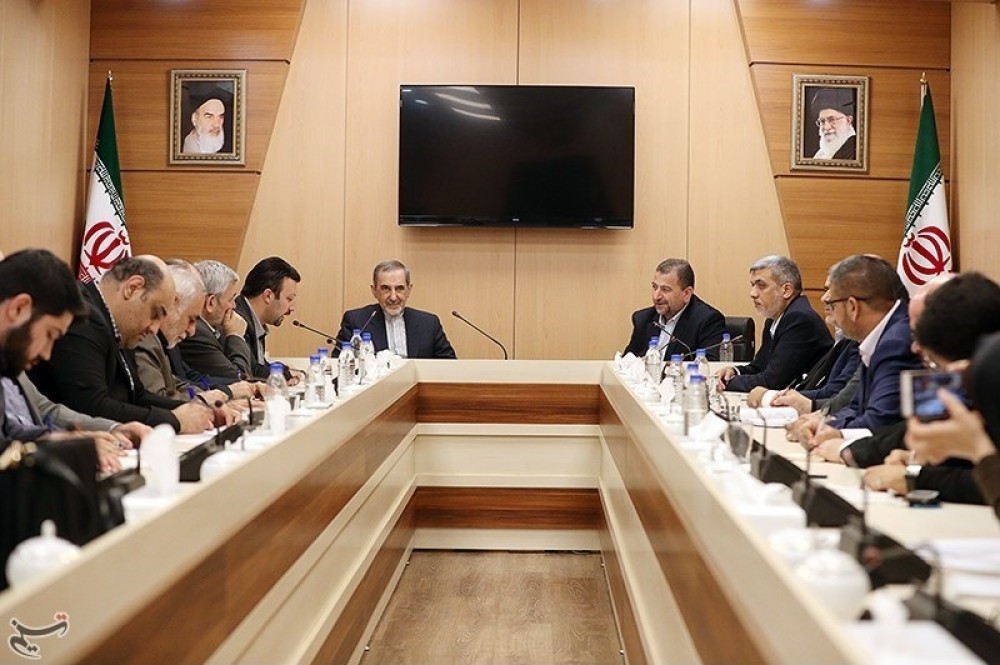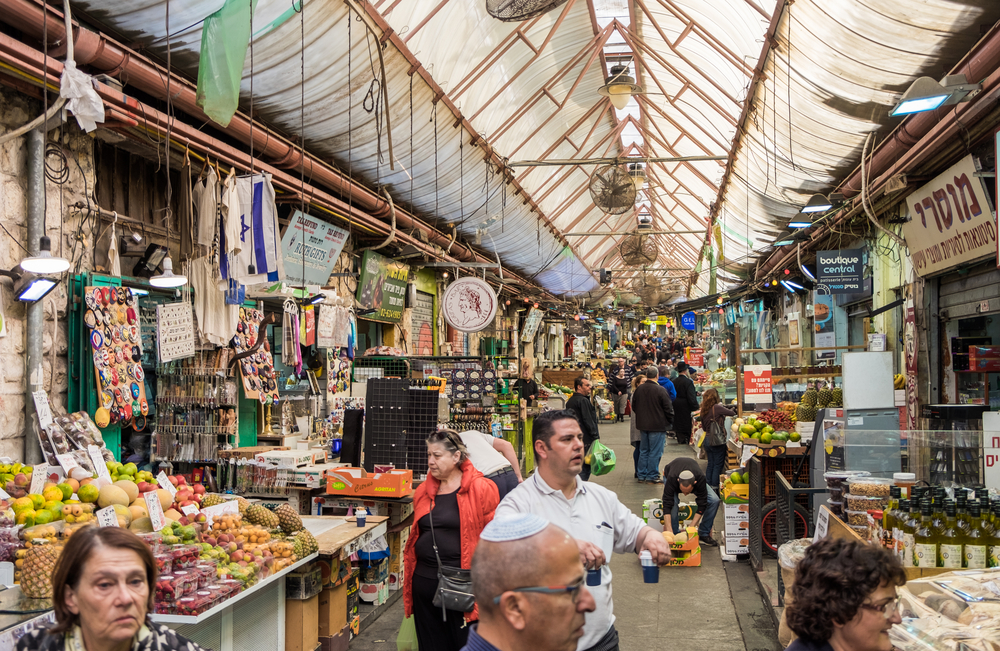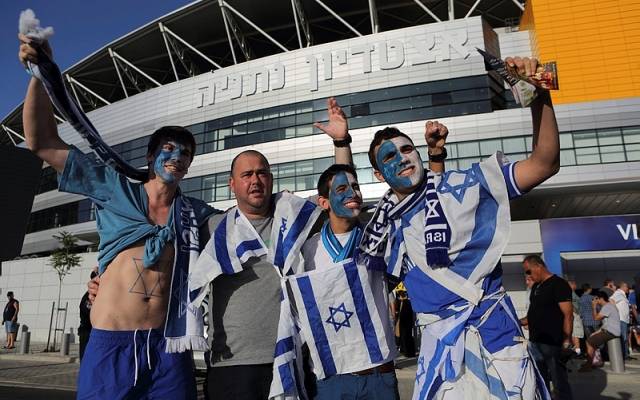
Artykuł w saudyjskiej gazecie ostro krytykuje Hamas: założył “irański emirat” w Gazie i jest całkowicie podporządkowany ajatollahom irańskim
MEMRI
W artykule z 13 października 2017 r. w saudyjskiej gazecie “Al-Riyadh”, saudyjska dziennikarka i nauczycielka akademicka, Baina Al-Mulhim, wyraziła zjadliwą krytykę Hamasu. Artykuł został napisany w sytuacji zbliżenia między Hamasem i Iranem, co odzwierciedlała wizyta delegacji Hamasu w Teheranie i wypowiedzi funkcjonariuszy Hamasu o znaczeniu zacieśnienia stosunków z Iranem i finansowym oraz politycznym poparciem Hamasu przez Iran[1]. Al-Mulhim napisała, że Hamas przeżywa kryzys tożsamości, ponieważ mimo tego, że jest to ruch sunnicki, naśladuje model irański i założył irański emirat w Gazie, a jego przywódcy są całkowicie podporządkowani irańskim ajatollahom. Dodała, że podobnie jak Hezbollah, nie jest to ruch oporu, ale raczej „kontraktor” realizujący plan irański i wykorzystujący problemy ludu palestyńskiego dla celów politycznych.
Poniżej podajemy fragmenty jej artykułu:
 Delegacja Hamas spotyka się z irańskimi przedstawicielami w Teheranie (Zdjęcie: alray.ps, 22 października 2017)
Delegacja Hamas spotyka się z irańskimi przedstawicielami w Teheranie (Zdjęcie: alray.ps, 22 października 2017)
Minęła tylko krótka chwila od podpisania [porozumienia] Hamas-Fatah, [w którym to czasie] zastanawiałam się w innym artykule, czy Hamas rzeczywiście jest poważny i czy pojednanie spowoduje, że powróci do zdrowych zmysłów i do arabskości… [niemniej] zaledwie kilka dni temu opublikowano [informację] o delegacji Hamasu pod przewodnictwem Salaha Al-Arouriego, zastępcy przewodniczącego biura politycznego Hamasu, która przybyła do Teheranu w miniony piątek [20 października 2017 r.] na spotkanie z irańskimi przedstawicielami, jak potwierdził funkcjonariusz Hamasu… Funkcjonariusz ten, który chciał pozostać anonimowy, ujawnił, że delegacja wysokiego szczebla obejmowała [innych] członków biura politycznego Hamasu i że miała spotkać się z kilkoma przedstawicielami Iranu na przestrzeni kilku dni. Powiedział, że celem wizyty było „poinformowanie Irańczyków o porozumieniu pojednania podpisanym przez Hamas i Fatah i o rozwoju sytuacji politycznej”, dodając, że delegacja miała także dyskutować „sposoby wzmocnienia i rozwinięcia dwustronnych stosunków między Hamasem i Iranem i zapewnić finansowe i polityczne wsparcie Iranu dla tego ruchu, jak również [pomoc w zdobyciu] broni”. Przywódca Hamasu w Gazie, Jahja Al-Sinwar, także podkreślił, że „Iran jest największym popierającym Brygady Al-Kassam”, militarne skrzydło Hamasu, „w kategoriach broni, pieniędzy i szkolenia”.
Jak wiadomo, Iran jest patronem – dla celów politycznych – ruchów sunnickich, które mają poglądy radykalne z natury, wśród nich Hamasu. Wszyscy zgadzają się, że poparcie polityczne to jedna rzecz, a poparcie sekciarskie to druga. Jednym z paradoksów, który powinien dać chwilę zastanowienia każdemu, kto w przeszłości próbował usprawiedliwić Hamas, jest to, że Iran wspiera [sunnickie] Bractwo Muzułmańskie w Egipcie bardziej niż wspiera szyicką partię Daawa w Iraku.
W Gazie Hamas założył irański emirat, który jest całkowicie podporządkowany ajatollahowi [tj. irańskiemu najwyższemu przywódcy, Alemu Chameneiemu]. Nie zapomnieliśmy przemówienia [przywódcy Hamasu] Chaleda Maszaala z 1 października 2011 r. w pałacu Chameneiego, które właściwie było powtórzeniem [przysięgi] lojalności i posłuszeństwa [wobec Iranu]. Maszaal był w końcu niczym innym jak urzędnikiem ajatollahów w Iranie!
Problemem ruchów ideologicznych, takich jak Hezbollah i Hamas – które reklamują się jako ruchy oporu, podczas gdy, według drogi politycznej, jaką oba obrały… są tylko „kontraktorami” [dla Iranu] – jest to, że wykorzystywanie problemów ich ludności dla celów politycznych, ekonomicznych i materialnych jest dominującym wzorem zachowania w ich czynach i stanowisku. Dowodzi tego ich stanowisko w sprawie rewolucji w Syrii – które odpowiada stanowisku ich patrona, Iranu!
Hamas doświadcza wewnętrznego kryzysu – kryzysu bardziej tożsamości niż polityki – wobec Arabów i wobec kilku krajów arabskich, z Arabią Saudyjską i Egiptem na czele. [Hamas] boi się obu tych krajów [i] wybrał Iran nie dlatego, że [Hamas] jest pariasem – jak próbują twierdzić ci, którzy bronią jego [pro] irańskiego stanowiska – ale ponieważ Hamas uważa Iran za model, który chce [naśladować] w ustanawianiu islamskiego emiratu w Gazie.
Powrót Hamasu [na łono] reżimu irańskiego, jak widać z jego wizyty [w Teheranie] – kiedy wie doskonale, że droga powrotu w [szeregi] arabskie wiedzie tylko przez Arabie Saudyjską – pokazuje, że Hamas nadal “maszeruje w miejscu”[2].
[1] On the recent rapprochement between Hamas and Iran, see MEMRI Special Dispatch No.7144, Alongside Reconciliation With Fatah, Hamas Officials Tighten Relations With Iran, Call To ‚Wipe Israel Off The Map’, October 23, 2017.
[2] Al-Riyadh (Saudi Arabia), October 23, 2017.
twoje uwagi, linki, wlasne artykuly, lub wiadomosci przeslij do: webmaster@reunion68.com




